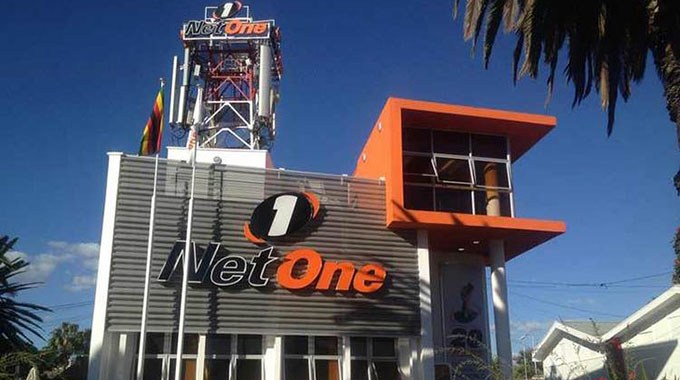Spiked Online Media shares finer details of the Huawei, NetOne partnership meant to improve mobile broadband in Zimbabwe, below:
1.1 1.1 Project Information
Project Name: NetOne Mobile Broadband of Zimbabwe
Location: Whole Territory of Zimbabwe
Content of Constructions: This project includes the construction of the wireless communication network, core network, transmission network, telecommunication service software, data center, network operation and maintenance system, and other supporting communication hardware and software facilities of NetOne in Zimbabwe.
This project is technically feasible. The technical scheme of this project applies the modularized design and thus can satisfy current service requirements and reserves spaces for future expansion. It features high performance-price ratio and is a preferred choice through systematic consideration and overall optimization. The technical scheme of this project features technological advancement, high reliability, easy maintenance, and high security, and can fulfill the application characteristics and requirements of the carrier. Meanwhile, main equipment apply environment-friendly design to save energy for the client and reduce impacts on the environment. Technically speaking, this project fits the local situations and is of high feasibility from an overall angle of view.
This project is economically feasible. This project features excellent economic efficiency and has the investment recovery capability, and is thus financially feasible. This project will greatly increase the technical and service level of NetOne and reduce public communication network prices through construction of wireless broadband networks infrastructure and services provision, bringing economic benefits as well as social benefits, and promoting the development of the ICT industry in Zimbabwe.
1.2 2.1 Background of the Project
1.2.1 2.1.1 Zimbabwe’s Information and Communication Development Strategy
Information and communication technologies play an increasingly more important role in the economic and social development of Zimbabwe. In 2005, Zimbabwe issued the policy framework for the development of the ICT. In January 2010, the Parliament of Zimbabwe approved the national ICT strategic plan (2010 – 2014) for the purpose of providing affordable ICT network services that can be accessed anywhere anytime within the territory of Zimbabwe. The key part of the plan is to construct the international high speed network and expand the coverage of domestic fiber networks, and to realize the objective of public ICT access of providing one PC in each classroom.
As for the development of the ICT, the Zimbabwean Government is dedicated to providing Internet access for all people from civil residents to high officials, and from urban areas to rural areas, including government, school and community, and tries to provide affordable Internet access anywhere in the country by 2015. This needs the development of the ICT infrastructure and corresponding management capabilities, and to strengthen the investment and cooperation in the ICT industry so as to increase the development of broadband and Internet services and to provide affordable services for the public. The specific objectives include: setting up 80 ICT service centers in rural areas, establishing digital cities and towns, and realizing Internet connection among libraries across the country; setting up governmental ICT training centers to realize computerization and e-administration of the governmental administration system. As for different regions, the country will focus on educating ICT experts, software developers and engineers to make full use of the expertise of local areas.
The Ministry of Information Communication Technology, Posts and Courier Services of Zimbabwe (the Ministry of Information Communication Technology) promotes the development of the e-commerce and e-education of Zimbabwe to push the country onto the highway of information and communication technologies. To this end, the Government spares all efforts to support the use of the ICT and arouse people’s awareness of using the ICT to enable all families keep contact with each other through the use of the ICT, enable the governmental departments to provide effective services and enable enterprises to maintain efficient operation. Recent years, the Zimbabwean Government not only spares all efforts to provide communication services for rural communities, but also launches personal computer projects in primary and middle schools to provide proper e-learning software for students. Governmental departments, especially the offices of President, the Parliament, the Prime Minister and the Ministry of Finance, have strengthened the use and supports of the ICT in hoping that Zimbabwe can be a digital-driven country and regional ICT hub as early as possible.
1.2.2 2.1.2 The Chinese Government supports the communication infrastructure construction and national informatization development of Zimbabwe all the time
The People’s Republic of China has established diplomatic relations with Zimbabwe on April 18, 1980. Since the establishment of the diplomatic relations between the two countries, the relationship between the two countries develops smoothly. China has undertaken many assistance projects in agricultural development, airport construction, hospitals and road constructions of Zimbabwe. The supports provided by the Chinese Government have promoted the economic and social development of Zimbabwe.
As for the communication infrastructure construction and national informatization of Zimbabwe, the Chinese Government has given profound supports all the time. Apart from funding supports, the Chinese Government also encourages enterprises in the ICT industry to develop their businesses in Zimbabwe, participate in the construction of the communication and informatization projects and educate talent in the fields for the country for mutual benefits. With the support of the Chinese Government, this project will be accomplished and delivered smoothly and will be a demonstration, promoting further cooperation in relevant fields between the two parties.
During Phase II project implementation, some remote areas has been covered with NetOne service only, which leveraged a positive social reflection and public recognition. More than 1,500 jobs has been created as well as massive training course on ICT delivered to the participants. After Phase II implementation, as the network service experience improved, better brand recognition has been realized.
1.3 2.2 Significance of Construction
1.3.1 2.2.1 The communication infrastructure of Zimbabwe has fallen behind and cannot fulfill the increasingly growing communication demand
The communication sector develops rapidly in Africa and construction and commercial use of 4G networks are the hotspots. In 2013, 5 years economic recovery plan was brought up with ICT sector being treated as one of the key diving factor. The ICT Ministry urged to accelerate network deployment to address coverage gaps in the 2015 plan.
At present, many African countries have actively launched 4G networks for commercial use. While mobile communications user of Zimbabwe mainly fall into 2G networks and the 3G/4G and data services have fallen behind with instable signals and slow rate. Smooth interconnection anytime is an impossible mission in most places. After being granted the 4G license, mobile carriers of Zimbabwe will focus on the construction and upgrade of 4G networks in a period of time in the hope of seizing a leading position and fulfilling the increasingly growing demands of users. The 3G traffic of NetOne increased by 16 times and the traffic of all networks increased by 10 times by the second quarter of 2016 by comparing with that in the fourth quarter of 2014. The increase will continue and the traffic of 4G networks will also increase rapidly, however, the existing network coverage is small and cannot sustain long-term development; therefore, expansion is a must. Meanwhile, the regulator in Zimbabwe raised the requirements to all operators for network service quality. It was required by POTRAZ that NetOne should achieve 100% coverage rate to be the prerequisite of license extension. In addition, POTRAZ also setup benchmark of network performance indicators. Due to fast growth of users and traffic in NetOne network, network congestion in some areas was identified, which resulted in breach of the performance benchmarks. The situation calls for network expansion.
With the domestic development in recent years, many foreign organizations and domestic residents have an increasing demands for telecommunication services, especially Internet access and mobile data services, and hope that they can realize fast communication through telecommunication networks and share the benefits of global informatization. However, poor communication facilities cannot satisfy these demands. A large gap has formed between the communication service capabilities and service demands. Mobile broadband services with low cost and fast installation will become a new drive for the development of the communication sector of Zimbabwe. This project will improve the communication infrastructure of the country, help the diffusion of mobile communication and Internet broadband access and enhance the communication standard of the country.
1.3.2 2.2.2 NetOne, as a state-owned mobile operator, undertakes important social responsibilities
Shotage of cash, liquidity risk has been bothering Zimbabwe which resort to mobile payment service. NetOne is currently developing and deploying mobile money system to alleviate the cash shotage issue and facilitate the consumption of citizens. This project will provide wider coverage, especially to some remote areas, which will enable citizens with variety of payments, improve finance envioronment, and the life style of Zimbabwe citizens.
1.3.3 2.5.2 Network constructor: Huawei Technologies Co., Ltd.
Huawei Technologies Co., Ltd. (“Huawei”) is a world leading information and communication solution provider and its equipment have been widely used in more than 100 countries and regions in the world. Huawei is dedicated to the expansion of the telecommunication market in Africa and has made its own contributions to the elimination of the digital gap. With the efforts made, Huawei has set up several research and development centers and training centers in Africa and has become the main equipment supplier for various African countries. The company has cooperated with African countries in transmission, access network, value-added services, and converged charging, etc,. set up strategic partnership with them and been highly appraised by the governments and carriers of African countries.
Since the entry into the Zimbabwean market in 1997, Huawei has become the largest communication equipment supplier of the market, set up strategic partnership with NetOne and realized the application of all-series products. Meanwhile, Huawei assists the Zimbabwean Government in the national transmission backbone line plan and undertakes the construction of the national fiber transmission backbone line project to connect the marine cables in Africa so as to increase the international exit bandwidth. Huawei has successfully completed a series of projects that are designed to improve communication quality and increase the work efficiency of the government of Zimbabwe, including the 2G/3G expansion project of NetOne, the national backbone line project of Telone, the fiber cable project of Liquid, and 2G/3G expansion project of Telecel.
1.4 5.1 Overview of the National Mobile Broadband Expansion Project
The national mobile broadband Expansion project is an important strategic project for improving the communication quality of Zimbabwe. NetOne effectively guarantees the communication security through construction of mobile networks and communication infrastructure and improves the telecommunication service level, which has attracted the attention of the government. This project includes the construction of the wireless communication network, site energy, microwave transmission network, IP core network, network operation and maintenance system, and other supporting communication hardware and software facilities, and supporting engineering, throughout the country.
After the completion of the delivery of NetOne Phase 2 , NetOne’s mobile broadband networks will cover 35% of the entire territory and 50% of the population of Zimbabwe. However, interconnection cannot be realized currently in vast rural areas and there are still great potentials for user experience improvement due to limited base stations in the urban areas.
This project will be integrated with phases 1 and 2 to improve the network
quality and market competitiveness of NetOne, reduce the gap with the main competitor Econet in network coverage and quality, increase the customer satisfaction and satisfy the demands of different consumers. It will help NetOne to increase market shares by providing easier and cheap mobile broadband services. Meanwhile, the construction of communication infrastructure will accelerate the progress of the national informatization strategy, bring social and economic benefits, drive rapid development of related industries and satisfy the communication demand of the public. It can also enable mobile networks to penetrate into vertical industries so as to help the government to realize the strategic objective of promoting the development of traditional industries through the ICT industry.
1.4.1 Indirect benefit evaluation
The indirect benefit of this project is embodied on the increase of the employment rate, driving of the national economy and improvement of NetOne’s operation status and competitiveness.
(2) Improve the operation status and competitiveness of NetOne
NetOne, as a state-owned carrier, has rich license and frequency resources and sufficient guarantee by the government. The broadband project can change situations of single service types of the existing network and operation status of NetOne and enable NetOne to profit. The successful operation of this project will increase the revenues of NetOne, improve its competitiveness and provide an efficient and quality communication platform for Zimbabwe.
(3) Strengthen the information security and protection
After the Snowden Incident, the Zimbabwean Government starts to emphasize the information security. As a state-owned carrier, NetOne undertakes the communication services for most state-owned enterprises and governmental departments and thus undertakes the responsibility for guaranteeing information security. The operation of the national mobile broadband by a state-owned carrier will ensure the information security of the country.
(5) Accelerate the information exchange and promote civil exchange
Through the data service platform of this project, more and more people can visit Internet and exchange with others in Internet communities, thus promoting information exchange and communication among people.
2 10 Social Impact Analysis
The construction of this project will produce significantly positive influence on the economic and social development of Zimbabwe in addition to the great direct and indirect economic benefits:
- Increase the employment rate and attract investments
During the construction and maintenance of this project, local technicians and engineering personnel will be employed; the subcontracting engineering in the local places will improve the employment of the places and provide more jobs. Meanwhile, wide use of Internet will promote talent exchange and education and improve the skills of local people.
- Drive the development of related industries
The successful implementation of this project will drive the development related industries, enhance the informatization and modernization level of Zimbabwe and provide an efficient and convenient service platform for investors. The mobile broadband network to be built has powerful throughput and data processing capabilities, and thus can provide realtime communication and data services for enterprises, public department and individuals and benefit the public of Zimbabwe with the broadband.
- Improve the investment environment
This project is helpful to improve the investment environment, accelerate the construction of the soft strength of Zimbabwe, provide a better office platform and information channel, improve the security guarantee of the financial systems and promote the implementation of the economic and social development goals of the government. During the World Tourism Conference held in Zimbabwe in August 2013, the communication guarantee system had shown its functions and contributions.
- Drive the development of the communication industry of Zimbabwe
This project focuses on the construction of 4G networks, which can stimulate carriers to enlarge their service scope, improve service quality,
fulfill customers’ demands, drive the development of the communication technologies and lead reforms and innovation of the industry in Zimbabwe.
- Strengthen national information security and maintain the market order
The implementation of this project will strengthen the information security guarantee of state-owned enterprises, institutions and governmental departments and ensure secure information circulation. Meanwhile, it will prevent market monopoly, and maintain normal market competition and sound development of the telecommunication industry.






